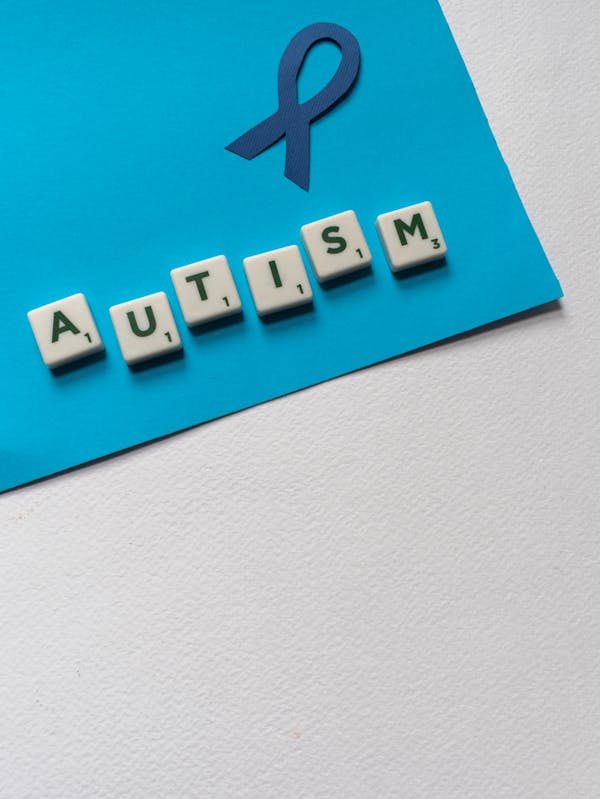
Autism in adults is, first of all, a disorder of perception of reality. The brain processes information in a special way, so thinking, emotions, and behavior are somewhat different from the generally accepted ones. Mental disorder can border on mental retardation, and is often detected in people with a very high level of intelligence, almost geniuses. In any case, an adult autistic person does not feel normal in society. But it will be possible to adapt, especially if you contact a psychiatrist or psychologist (necessarily a clinical one) early.
There is no diagnosis under the term “autism” in ICD-10. It is used to designate individual forms. These forms have their own, individual codes. The term is also used for any psychopathologies that represent the autistic spectrum.
Causes of Autism in Adults
Why the pathology occurs in some people and bypasses others is still unclear. In the scientific world, it is considered polyetiological. This means that the impetus for development is not one factor, but a combination of several. But there are a number of reasons that have already been precisely established. What can provoke the disease:
- treatment of pregnant women with anticonvulsants (drugs for seizures);
- fragile X syndrome, a syndrome in which cognitive functions do not manifest properly;
- the introduction into the body of a pregnant woman of RNA-containing Rubivirus viruses, which cause rubella, and then congenital malformations of the fetus;
- tuberous sclerosis – multiple lesions of the nervous structures and internal organs, due to which there is a high risk of healthy cells degenerating into cancerous ones;
- hypotension-obesity syndrome, which combines abnormal physical development, mental health problems like tearfulness and cognitive problems.
So, in the overwhelming majority of cases, the causes are genetic. It is not autism itself that is coded, but the syndromes that often determine such a perception of reality. And an unfavorable family history is not always to blame. Gene mutations can be spontaneous, and completely normal mental parents give birth to an unhealthy baby.
As in the case of schizophrenia, in adults with autism, diagnosticians often find an abnormal structure of some brain regions. The frontal cortex, hippocampus, cerebellum, and temporal lobes have developed with disturbances. True, such changes are not detected in all patients. But such cases are enough to establish a connection between atrophy and an incorrect perception of reality.
Based on our experience, the form of the disorder directly depends on the damage to a specific part of the brain. If the cerebellum is damaged, there are problems with speech, memory, movement, thinking, concentration. If other areas are underdeveloped, a person may have difficulty learning, recognizing the emotions of others. Such patients find it difficult to get used to something new, they have to adapt to changes for a long time and often unsuccessfully.
Predisposing factors
Autism in an adult comes from childhood. Complicated child-birth has a negative effect on the baby of psyche. Most often, such a negative development of events is observed in mothers with hypertension, diabetes, preeclampsia. It is often caused by the threat of miscarriage, premature birth, uterine bleeding that is dangerous for the of woman.
The command in which kids are born in a family is Many parents then refused to vaccinate their children, fearing autism. imperative. Fifth or more births are a high risk factor. Although it is not customary to use the term old-time mothers now, the fact remains. The older the mother and father, the higher the probability of having an autistic child.
Please note!
Previously, before the creation of informative diagnostic methods, the disease was blamed on vaccination of children. Namely, the triad of vaccinations collected in one immunobiological agent – anti-rubella, anti-measles and anti-mumps. Many parents then rejected to immunize their children, dreading autism. Now it has been clearly established that no vaccinations cause it. But some mothers and fathers still refuse vaccination, citing dubious sources.
Pathogenesis
There are no contributory analytical methods for learning the spirit. So the mechanism of development of psychopathology may remain hidden for a long time. According to scientists, there are three main periods when the brain improves – almost immediately after a year, and also on average at 6 and 10.5 years. The changes are cardinal, necessary for the correct development of nervous functions at each stage of growing up. If at least in one of the three periods a neurophysiological failure occurs, the consequences will not be long in coming. Including autism.
But how the disease gets worse is known. Our research has shown that the psyche does not develop according to the principle of from simple to complex, but chaotically. For example, the baby first pronounces words and only then the typical cooing of infants appears. Or both are combined. And this is not at all harmless. Without the synchronicity inherent in nature, the central nervous system matures with errors – motor, emotional, speech.
Classification, forms of autism in adults
The disease has no clear classification and stages, it is not divided into groups by causes or the nature of symptoms. But the forms of deviation are determined. For example, the disease can be early childhood, simply childhood, traditional autistic disorder. There are four degrees of autism in adults:
- Severe.:The person is unable to take care of himself, there is no desire to communicate at all. His usual state is a combination of detachment and asociality.
- Moderate:Any abrupt collapse of a stable situation, internal or external, might cause the patient to become aggressive. While he is alone with his loved ones, he is calm and peaceful, often repeats what others say and is willing to talk. He cannot grasp the meaning of those drawings. If you mention that today is September, the autistic will believe that it is, in fact, that month.
- Moderate: There is a desire for social interactions, as well as a desire for success. More often than not, it remains only a dream, because risk and compromise solutions are unacceptable for the patient. There is only one concentration, a hardly dedicated one. If the child is helped to move forward in this direction, as an adult, he will realize himself well in the profession.
- Mild: The person is willing to make contact, knows how to read emotions and react correctly. But not for long. After all, for productive communication he has to make a lot of effort, he gets tired quickly. Patients are distinguished by shyness, absent-mindedness and vulnerability.
The prognosis directly depends on the severity. The milder the disease, the more successful life is.
Signs of Autism in Adults

When the form is mild, it is impossible to identify an autistic person without special knowledge. According to our observations, there are plenty of such people. They are usually well-thought-out a little odd, with a quirk. Moreover, this is taken for character traits. And indeed, such quirks are observed in absolutely healthy people, often associated with the temperament inherent in nature. But a person with a normal psyche is able to get rid of his quirk. Let it be reluctantly, suffering, literally forcing himself. A sick person cannot change.
How does autism manifest itself in adults:
- problematic understanding of other people’s emotions and, accordingly, the wrong reaction – a smile when talking about troubles, indifference to a good event;
- a desire for solitude, a certain isolation from everyone;
- anger, irritation, which, in the opinion of others, hallucination are unfounded;
- inability to communicate the emotions of a person, feelings, or using phrases overheard from others.
- inhibition to understand when a person is joking or speaking seriously;
- unwillingness to look directly into the eyes of the interlocutor;
- painful sensitivity to the touch of other people, even accidental, the desire to always maintain personal space;
- choosing those hobbies that require concentration and precise actions (modeling, puzzle assembly, applique, etc.).
Some symptoms even make life easier. Thus, the desire for order helps in family life, and strict adherence to the daily routine and rest has a positive effect on physical health.
The statistics are adamant – only one case out of five is female. But many psychiatrists consider them dubious. The signs of autism in adult women are smoother due to their ability to disguise themselves. They are initially more observant, not prone to hasty conclusions. Women can imitate others, imitate their emotions. Even if autism is in a moderate form, it may remain unrecognized. After all, the woman seems to behave quite normally, and everyone has oddities.
Scientists believe that this is due to high levels of testosterone. Men behave more aggressively when their personal space is violated, quickly boil over and take a long time to calm down. Scientists also blame the larger brain in men – the affected areas are larger. In addition, they are prone to stereotypes, while women are good at adapting to different circumstances. The lack of camouflage explains why autism is more often diagnosed in men.
Complications
If childhood psychopathology was not recognized, the parents did not show the child to a psychiatrist, then in adults the symptoms of autism become more severe, transforming into complications:
- intellectual development stops, the desire for self-development fades;
- due to problems with the speech apparatus and motor discoordination, the person is shy and does not try to communicate;
- aggression in adult autism, as an attempt to protect personal boundaries, which can end in punishment (administrative, criminal);
- the mood increasingly resembles depression, the patient is depressed, oppressed, and thinks about suicide;
- against the background of a serious internal conflict, a desire for self-harm arises, for example, plucking eyelashes and eyebrows.
An interesting fact is that most autistics have a fairly high pain threshold. It would seem that this is even good, making a person more resilient. In fact, a low sensitivity to pain does not allow for timely diagnosis of diseases, and very serious ones at that. A visit to the doctor is constantly postponed. When the pain is no longer bearable, the pathology has reached stage 3-4.
Diagnosis of Autism in Adults

Interview, observation and testing are the three basic diagnostic methods. Therefore, the initial examination may well be done at home. The psychiatrist will ask questions, monitor of of patient reaction to them, and evaluate the behavior. Then he will give you a questionnaire with questions that you need to answer thoughtfully and in detail. Based on the results of the autism test for adults, it will be possible to understand how difficult social interactions are, how the person thinks and what he is interested in.
The diagnostics are completed by instrumental examination. Electroencephalography will help to determine the readiness for seizures, tomographic scanning – brain anomalies.
Treatment of autism in adults
Patients are rarely hospitalized, such cases are rare. Usually the reasons are uncontrolled aggression and attempts to harm oneself. In general, treatment is home and/or outpatient.
Even with a mild form of the disease, you cannot do without supportive therapy. It helps the patient stay calm in difficult situations, get rid of negative emotions. Pharmacotherapy works well:
- antipsychotics will chunk hostility and the impulse to self-harm
- antidepressants will kick your attitude and eradicate some of the slowness of thoughtful;
- sedatives will calm you down and help you cope with excessive anxiety and unreasonable worry;
- Sleeping pills will improve your sleep, allow you to sleep well and feel refreshed and rested in the morning.
All autism spectrum disorders in adults require psychotherapy. Sessions are individual, using mainly cognitive-behavioral practices. The doctor finds out which aspects of the disease have a negative impact on the life of patient , then corrects them. For example, many autistic people cannot defend their point of view, they immediately get lost. The psychiatrist will teach how to behave in conflicts, how not to forget about your interests.
Prognosis and prevention

In adults, the diagnosis is not removed, but such cases occur in children. Therefore, the disease is incurable, there are no methods that would allow you to cope with it once and for all. If autism in grown-ups is unimportant, the prediction is tremendously promising. Doctors will help you accept it and learn to live without any restrictions. In other cases, everything depends on the severity of mental problems.
The causes of the disease are highly unknown, so there is no definite prevention. But pathological pregnancy can definitely cause autism. Obstetricians and gynecologists recommend that women do not ignore their recommendations, carefully prepare for conception, and immediately contact a doctor even if their health deteriorates slightly, at first glance.
Answers to questions
Can autistic people have healthy children?
Absolutely. The risk of having a child with autism is about 10% higher. If the father or mother has an unfavorable medical history, then a good solution would be to visit a geneticist. After testing, it will be clear how high the risk of having a sick child is.
Can autism appear in adulthood?
There is no evidence that the pathology can be acquired. In everyday life, it is generally accepted that a severe head injury and serious brain infection can adversely affect the state of the nervous system. Scientists do not consider this version serious.
Is a person with autism able to socialize?
Of course, provided that the psychopathology is mild or moderate. Nothing avoids a one’s from conclusion a soul mate, reviewing, being positive in a profession. When the disease is moderate or severe, an autistic person does not need any socialization. If the internal and external order is not disturbed, he is happy and peaceful.
Should I see a doctor if autism is incurable?
The doctor will teach the patient to correctly analyze what is happening around, express his feelings and control his actions. He will stop confusing emotion of other people, will not leave them without attention, his reactions will be appropriate. An autistic person understood and accepted by society feels significant for it, is in a state of spiritual harmony.